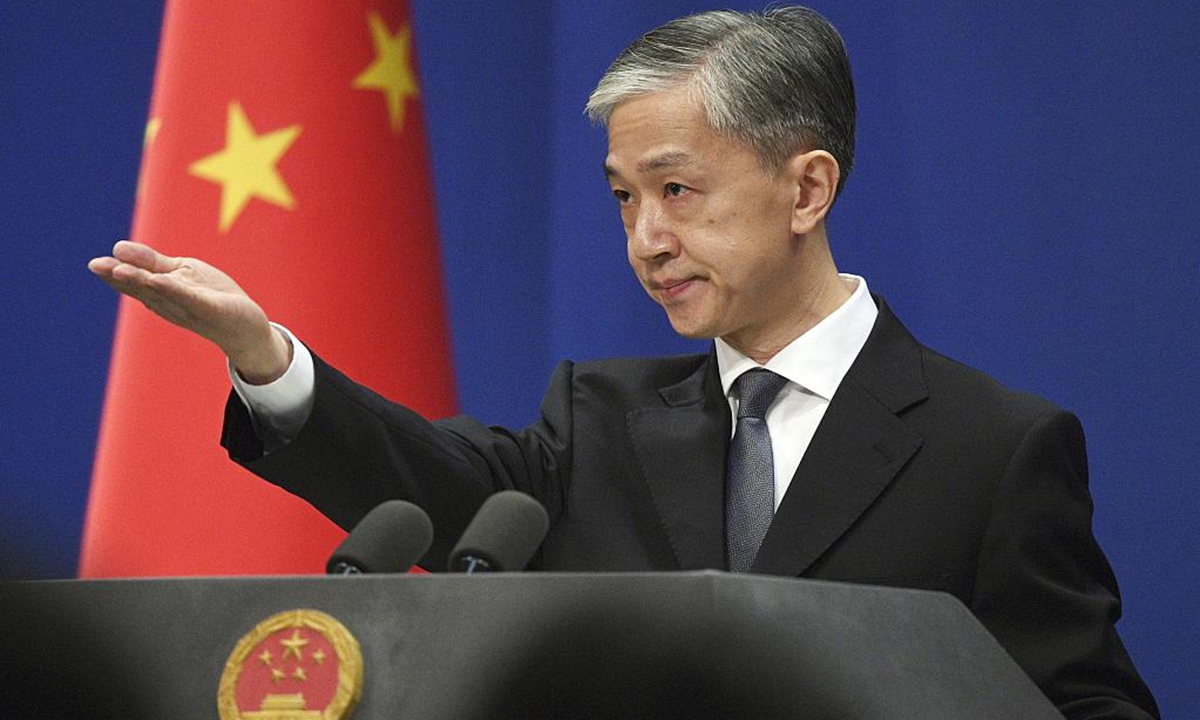
Foreign Ministry spokesperson Wang Wenbin. (Photo: VCG)
China's Foreign Ministry said on Wednesday that China does not partake in "distortion of market behavior," while urging the US not to pursue protectionism, and stop suppressing global enterprises and engaging in long-arm jurisdictional practice, in response to US Trade Representative Katherine Tai's remark that the US will more actively pressure China.
China firmly advocates trade liberalization and facilitation, and is determined to continuously expand the opening-up drive, Chinese Foreign Ministry Spokesperson Wang Wenbin said at a press briefing.
Wang's response came after Tai made the remark that the US is done "sitting on its hands" and will more actively pressure China to change trade practices that the US believes distort the market.
Tai also noted that the US is not going to stop pushing China and challenging China to reform and change, emphasizing that "we can't afford to keep sitting on our hands and waiting for China to make its decision." "We are going to need to turn the page on the playbook," said Tai.
Wang responded that China does not partake in any so-called "distorted market behavior," adding that the US needs to turn a new page to stop generalizing the concept of national security and suppressing global enterprises with its present technological advantages and global financial hegemony.
Meanwhile, Wang urged the US to stop unilateral bullying and long-arm jurisdictional practices. Such behavior seriously contraries to the principles of market economy and international economic and trade rules, harming the interests of other countries as well as the US, and undermining the security and stability of the global industrial supply chain.
Wang reiterated that the Chinese government has always supported the multilateral trading system centered around the World Trade Organization, respected the laws of the market, opposed protectionism, and aimed to promote the healthy and stable development of the global economy and trade.


